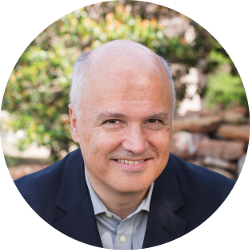“All I wanted was to do my job. I’m good at my job. Why can’t people see that I don’t need help?”
— Dr. Teresa “Teri” Culpepper
The decisions we make define our lives. Uphill or downhill? Right or left? Right or wrong?
One decision we face frequently is whether to go it alone or to join up with a team.

There seems to be something in our nature that biases us toward the solo path. We like to read stories or watch movies about the hero who stands alone against evil, prevailing against the odds. Rambo. Kwai Chang Caine. John McClane. Bruce Wayne. The Lone Ranger. Where the hero has colleagues, they’re mostly there to provide contrast or comic relief—a plot device to make the hero look good or to help the writer explain things to the audience.
We fancy these stories because we admire the go-it-alone model. And it works—at least in these fictional universes. Unfortunately, we don’t get to live life there. In this reality, where we actually live, the rules are different. As John C. Maxwell says in The 17 Indisputable Laws of Teamwork, “Nothing of significance was ever achieved by an individual acting alone.” His first “indisputable” law, the law of significance, says that “One is too small a number to achieve greatness.” If you take time to look at the backstory of any hero of the real world, you’ll find they had a team behind and around them.
So why do we prefer the solo path? If I go my own way, I don’t have to worry about anyone else. I don’t have to explain my thinking or try to convince anyone that I’m right. I don’t have to carry their water. I don’t have to listen to them whine. I don’t have to compromise. I don’t have to share the credit for my eventual success. And there will be no witnesses to my failures.
And, when I get there, no one with whom to share my celebration. Oh, sure, I’ll share, but no one else will care enough to listen or rejoice with me. They’re all part of a community, and just like I didn’t need them, they’ve learned to get by without me.
While I do think there is something in our nature that biases us toward the solo path, I also think we were made for community. We yearn for people who will rejoice in our successes. And we treasure those who come alongside us in our failures.
What is a community? A community is a group of people united by a common interest. Teamwork is more than community, and community is more than teamwork, but you can’t have a successful team without community, and you can’t have a successful community without teamwork.
Teamwork is how a community organizes and executes to protect the interest that unites them, and this, I think, was the crux of Culpepper’s problem in Forager: She never came to grips with the common interest of the community in which she found herself. She didn’t sign up to do life with this group of people; she sought to be the first botanist to study plant life on another planet. The rest were strangers with whom she neither had nor desired any kind of relationship. Worse, they were competitors for limited resources that she needed to enable her to execute her role.
Maxwell’s second law of teamwork—what he calls the law of the big picture—says “the goal is more important than the role.” After their supply line from Earth was lost, the big picture goal—in other words, their common interest—became survival. To Culpepper, that was someone else’s problem. Her role was botany, and everyone else needed to get out of her way and let her get it done. She didn’t sign up for a team, and she had no desire to join any community. It wasn’t until the single-minded pursuit of her profession nearly got her—and Guerrero—killed that she came to recognize a shared interest in getting through this alive.
So if it’s all about the team and collective success, does that mean that individualism and heroic character are outmoded? Not at all. Maxwell’s third law of teamwork—the law of the niche—says “all players have a place where they add the most value.” Guerrero clearly understands where he adds the most value. As does Culpepper. They each have a role to play, and each is uniquely gifted for their role. The team succeeds, and the community thrives, when every individual executes their respective role—subject to The Law of the Big Picture.
Forager
Alex Guerrero and Teri Culpepper have nothing in common.
He’s an elite warrior, trained to be a leader in Earth’s premier fighting force.
She’s an academic, a professor of botanical sciences, struggling to keep enough grants coming in to support her meager research.
But now a catastrophe has forced them together, the lives of eight people hanging on the success of their daring mission into unexplored territory on an unknown planet. Can they work together to find the secret to survival on this alien world, or will their rivalry doom the entire expedition?
More info →






You must be logged in to post a comment.